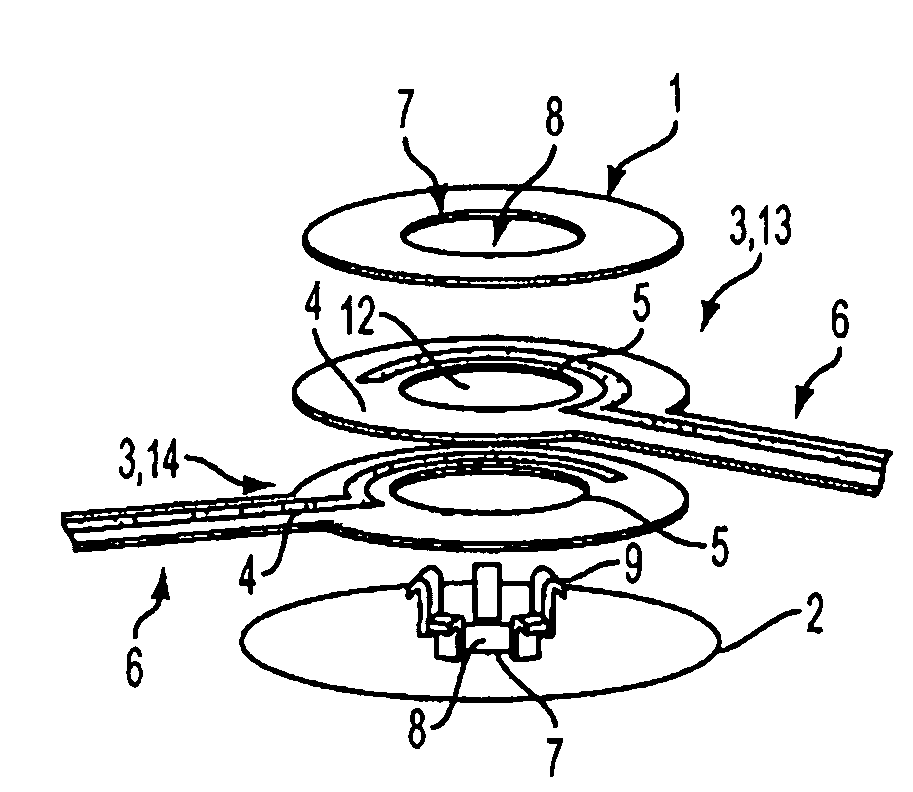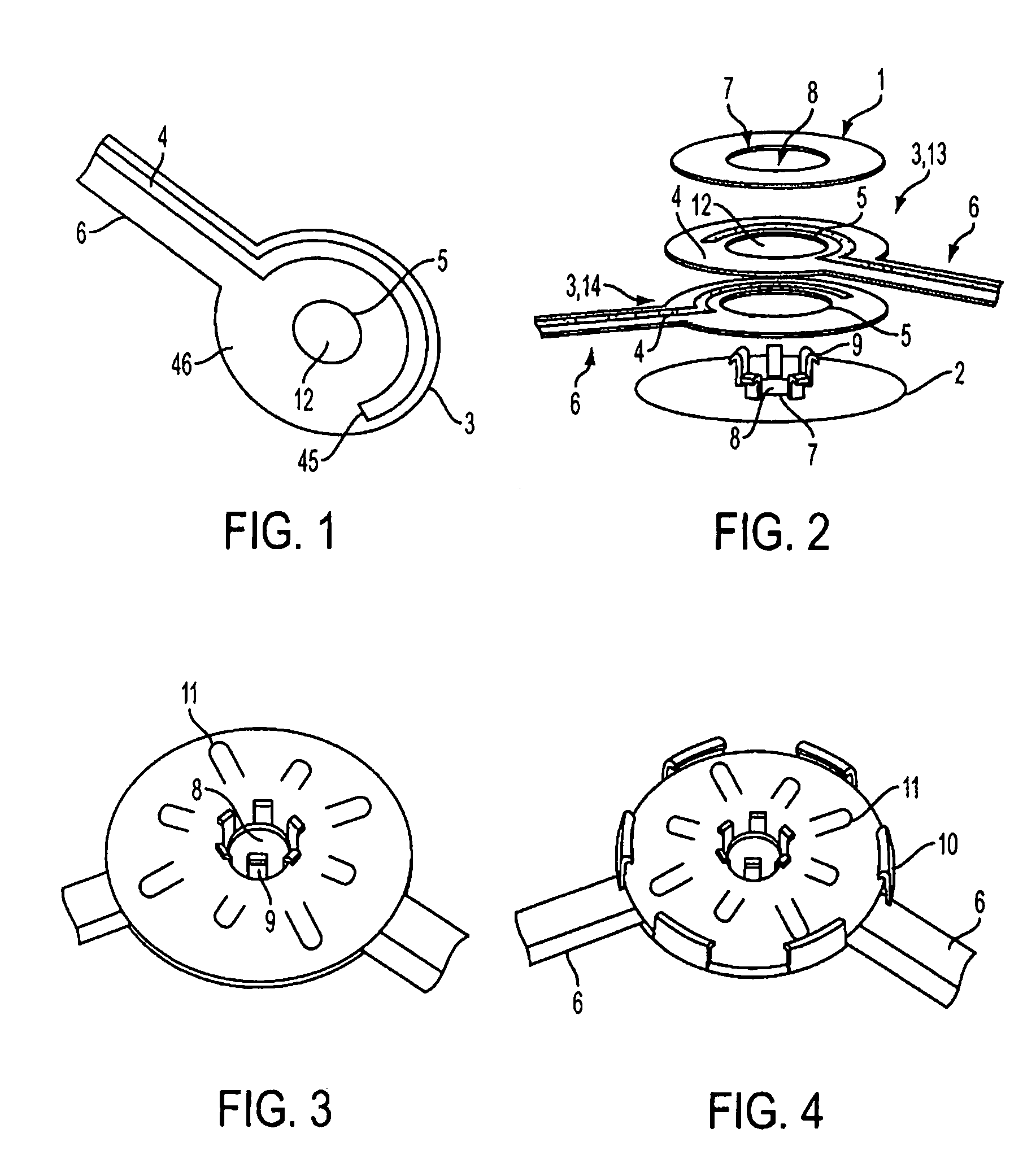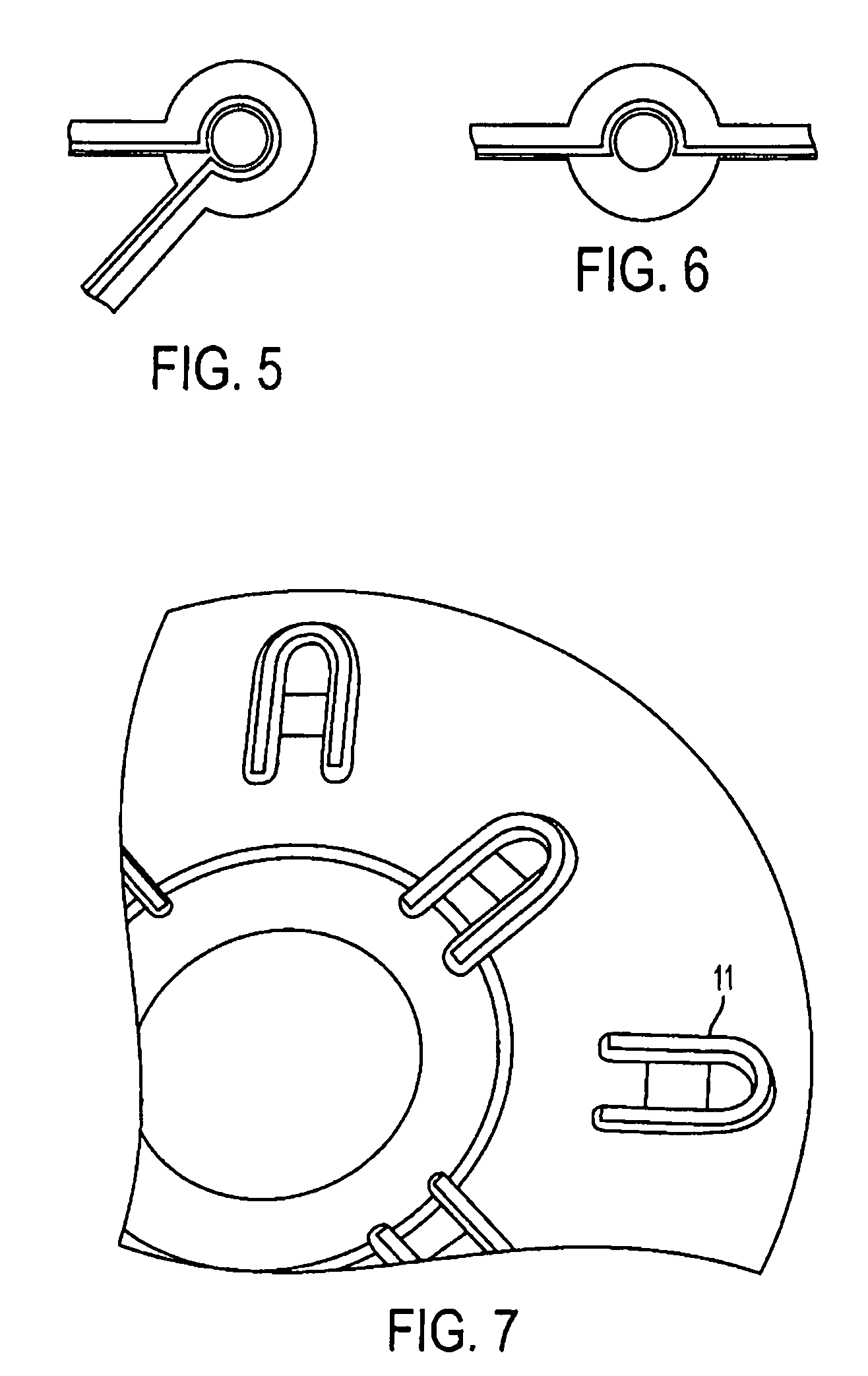Electrical connector for connecting a plurality of printed circuits
a technology of printed circuits and connectors, applied in the direction of application, coupling device connection, diagnostic recording/measuring, etc., can solve the problems of circuits that require very long straight segments, circuits that require turns or very long segments, and waste significant materials
- Summary
- Abstract
- Description
- Claims
- Application Information
AI Technical Summary
Benefits of technology
Problems solved by technology
Method used
Image
Examples
Embodiment Construction
[0059]The present invention is an articulated electrical connector used to provide an electrical connection between printed circuits. The circuits may be flexible, semi-flexible or rigid circuits. The connection may be made between two discrete parts or may be used to connect different sections of the same circuit.
[0060]As shown in FIG. 1, at its simplest, the connector is nothing more than two or more of the illustrated exposed conductors 45 on a non-conductive backing 46 which are mated together and fastened to complete the connection. As shown in FIGS. 9A and 9B, the circuits may or may not have insulation 47 covering the traces in regions where they do not meet. Suitable fasteners include conductive and non-conductive adhesives, tapes, rivets, clips, clamps, interlocking fit, friction fit, or outer or intermediate housings or any suitable means to hold the two or more circuits together as may be required to maintain or prevent electrical contact as required by the particular cir...
PUM
 Login to View More
Login to View More Abstract
Description
Claims
Application Information
 Login to View More
Login to View More - R&D
- Intellectual Property
- Life Sciences
- Materials
- Tech Scout
- Unparalleled Data Quality
- Higher Quality Content
- 60% Fewer Hallucinations
Browse by: Latest US Patents, China's latest patents, Technical Efficacy Thesaurus, Application Domain, Technology Topic, Popular Technical Reports.
© 2025 PatSnap. All rights reserved.Legal|Privacy policy|Modern Slavery Act Transparency Statement|Sitemap|About US| Contact US: help@patsnap.com



